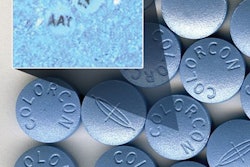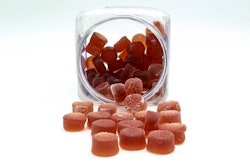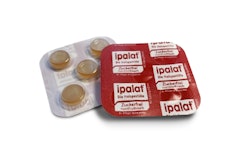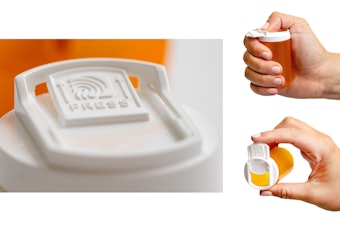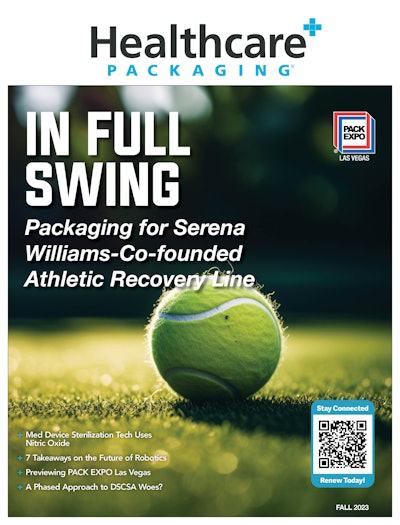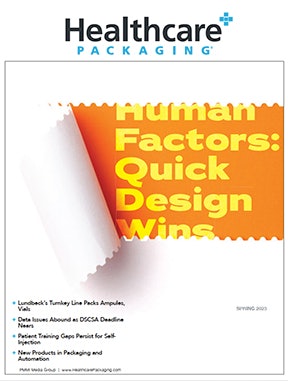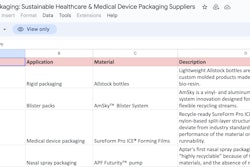
What lessons can drug packagers learn from Johnson & Johnson's McNeil Healthcare LLC's recall of products including Tylenol, Benadryl, Motrin, and Rolaids products because of a musty smell?
That even the big companies get dinged now and then? That even the company known for such good handling of the Tylenol poisonings in the 1980s can get criticized by the U.S. Food & Drug Administration for allegedly being too slow to respond?
Well, maybe, but also, if this really was caused by the drugs' absorption of a harmless odor from wooden pallets, as it now appears it was, there could be no better reminder of both the breadth of the controls called for in drug manufacturing and packaging, and the integral nature of packaging to drug manufacturing.
FDA's current Good Manufacturing Practices (cGMP) regulations require the use of safe and suitable materials. They also require protection of product against contamination, and packaging materials—at manufacturing, wholesale, and retail levels
—are usually a big part of the techniques employed to do the trick.
Almost regardless of what further investigation reveals about the cause here, one lesson we can immediately take away is that when it comes to cGMPs, you've got to think of everything.
The cGMP regulations call for controls affecting all aspects of an operation, from what you'd expect, such as control of components and manufacturing processes, to matters you might not expect, for example buildings and facilities, personnel, equipment, records, and yes, packaging containers and closures.
The regulations say drug product containers should not be “absorptive so as to alter the safety, identity, strength, quality, or purity of the drug beyond the official or established requirements.” With the McNeil matter, it's not clear whether the wild card was the presence of the offending chemical in the first place, or the failure to protect against its odor getting into the product. We'll leave to McNeil the determination of whether protection against picking up such odors needs to be incorporated into its everyday cGMPs.
In the meantime, the FDA has already expressed its impatience with McNeil for not acting faster in the face of the problem. An FDA-er was quoted as saying it's important to investigate and solve a problem when something smells bad, literally or figuratively.
-By Eric Greenberg, Attorney-at-Law
That even the big companies get dinged now and then? That even the company known for such good handling of the Tylenol poisonings in the 1980s can get criticized by the U.S. Food & Drug Administration for allegedly being too slow to respond?
Well, maybe, but also, if this really was caused by the drugs' absorption of a harmless odor from wooden pallets, as it now appears it was, there could be no better reminder of both the breadth of the controls called for in drug manufacturing and packaging, and the integral nature of packaging to drug manufacturing.
FDA's current Good Manufacturing Practices (cGMP) regulations require the use of safe and suitable materials. They also require protection of product against contamination, and packaging materials—at manufacturing, wholesale, and retail levels
—are usually a big part of the techniques employed to do the trick.
Almost regardless of what further investigation reveals about the cause here, one lesson we can immediately take away is that when it comes to cGMPs, you've got to think of everything.
The cGMP regulations call for controls affecting all aspects of an operation, from what you'd expect, such as control of components and manufacturing processes, to matters you might not expect, for example buildings and facilities, personnel, equipment, records, and yes, packaging containers and closures.
The regulations say drug product containers should not be “absorptive so as to alter the safety, identity, strength, quality, or purity of the drug beyond the official or established requirements.” With the McNeil matter, it's not clear whether the wild card was the presence of the offending chemical in the first place, or the failure to protect against its odor getting into the product. We'll leave to McNeil the determination of whether protection against picking up such odors needs to be incorporated into its everyday cGMPs.
In the meantime, the FDA has already expressed its impatience with McNeil for not acting faster in the face of the problem. An FDA-er was quoted as saying it's important to investigate and solve a problem when something smells bad, literally or figuratively.
-By Eric Greenberg, Attorney-at-Law



